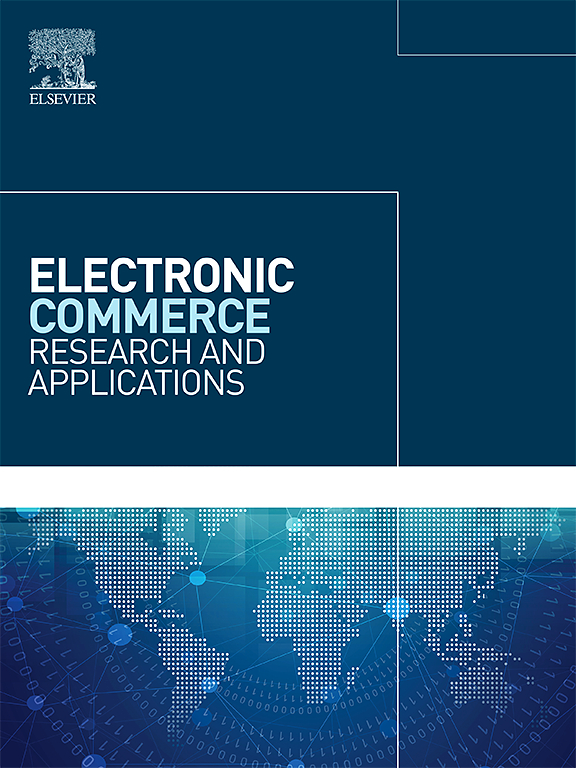Posterior price guarantee strategy with randomized pricing in electronic commerce
IF 5.9
3区 管理学
Q1 BUSINESS
Electronic Commerce Research and Applications
Pub Date : 2025-05-19
DOI:10.1016/j.elerap.2025.101511
引用次数: 0
Abstract
The posterior price guarantee (PG) strategy, leveraging randomized pricing, has gained widespread adoption among retailers. Under this strategy, retailers operating within an infinite timeframe assure consumers that they will refund the price difference if the product is purchased prior to the price reduction. Consumers exhibit heterogeneity in terms of their valuation, patience, and concerns regarding PG. This study examines how consumer purchasing strategies impact the effectiveness of the PG strategy. Specifically, we examine how the PG strategy affects the retailer’s pricing, promotion probability, and the duration of the PG period. Our findings reveal that the PG strategy compels the retailer to decrease the probability of promotions and enhance their depth, which negatively impacts consumer surplus. Furthermore, we identify the optimal length of the PG period, which is contingent upon consumer characteristics and the nature of the product.
电子商务随机定价的后验价格保证策略
利用随机定价的后置价格保证策略在零售商中得到了广泛的应用。在这种策略下,零售商在一个无限的时间框架内经营,向消费者保证,如果他们在降价之前购买了产品,他们将退还差价。消费者在评估、耐心和对PG的关注方面表现出异质性。本研究探讨了消费者购买策略如何影响PG策略的有效性。具体来说,我们研究了促销策略如何影响零售商的定价、促销概率和促销周期的持续时间。我们的研究结果表明,PG策略迫使零售商降低促销的概率,提高促销的深度,这对消费者剩余产生了负面影响。此外,我们确定了PG期的最佳长度,这取决于消费者的特点和产品的性质。
本文章由计算机程序翻译,如有差异,请以英文原文为准。
求助全文
约1分钟内获得全文
求助全文
来源期刊

Electronic Commerce Research and Applications
工程技术-计算机:跨学科应用
CiteScore
10.10
自引率
8.30%
发文量
97
审稿时长
63 days
期刊介绍:
Electronic Commerce Research and Applications aims to create and disseminate enduring knowledge for the fast-changing e-commerce environment. A major dilemma in e-commerce research is how to achieve a balance between the currency and the life span of knowledge.
Electronic Commerce Research and Applications will contribute to the establishment of a research community to create the knowledge, technology, theory, and applications for the development of electronic commerce. This is targeted at the intersection of technological potential and business aims.
 求助内容:
求助内容: 应助结果提醒方式:
应助结果提醒方式:


